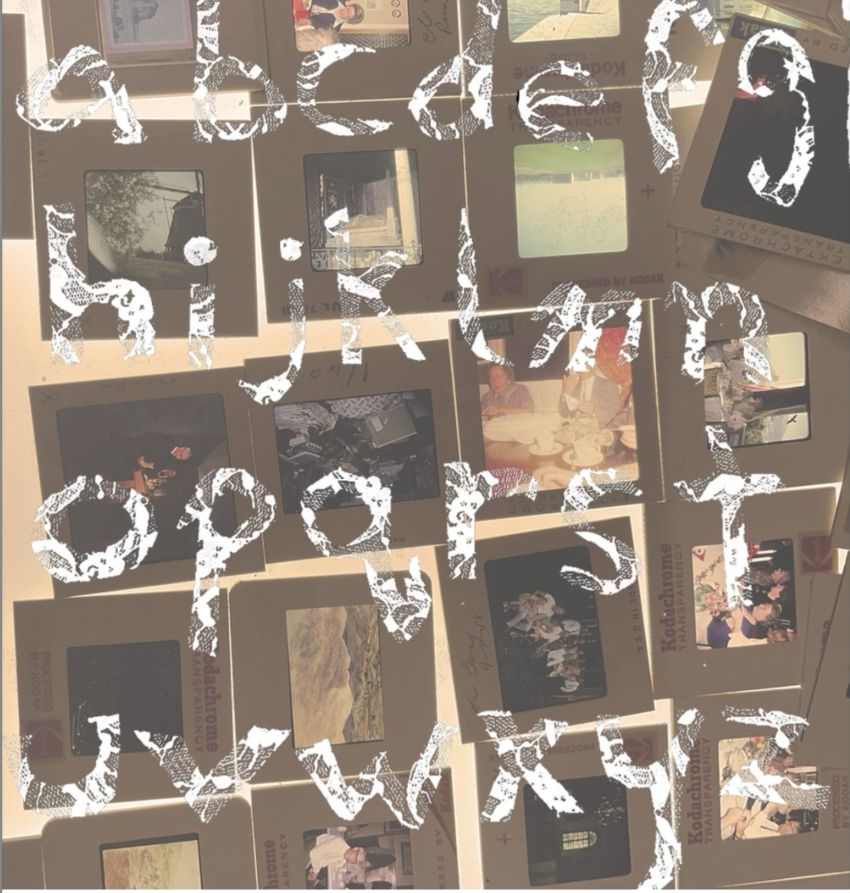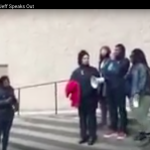I spent this last summer splitting time between research and retail, on a race to pay for my groceries. My mornings were spent alongside the surrealists of the 20th century, shivering in the unexpected coldness of the Manuscripts archive. My afternoons were about the material, holed up in the vintage store researching obscure military buttons and sorting the latest haul from a nearby estate sale. The New Haven heat had impregnated every corner of the store, so I began the habit of wearing as few clothes to work as possible and commiserating with my coworkers from behind the blades of our singular floor fan. I married my mornings and afternoons with cold caffeine and quick to-go lunches.
The vintage store is like a grotto of curiosities, which my boss enlists a small staff to tend and appreciate with a knowledge of its origin. The premise of the job is knowing. Knowing value, knowing material, knowing history. Knowing “New Haven pricing”, (which is an invisible ceiling on prices that my boss refers to, hinting at the fact that people in New Haven don’t know the value of the objects in the store and simply won’t pay that much for them). Like a sweaty sponge, I soaked up all of this thoughtlessly.
Despite being in New Haven, my summer defamiliarized me from Yale. I was a ghost in the Sterling Stacks, silently slipping out as high schoolers and tourists snuck in. I spent most of my days talking to customers and coworkers in the shop.
I became familiar with my work in the quotidian, monotonous, disgusting kinds of ways you don’t when you work once a week in the school year. I learned the downtown trash days, fended off smart swarms of fruit flies, and met the regulars. It never occurred to me that a vintage store could have regulars, that this store packed so full of frivolous tchotchkes might be the needful routine (the lunch break-browse or the Way Back from the supermarket) of many.
It was a Sunday afternoon in dead July at the vintage shop—perhaps one of the only times it was appropriate to show up to work clad scantily in old denim-micro shorts, knee-high leather boots (the ones with a clackity heel, you know!) and sea-shell jewelry. I had been clacking my way around the empty store with a wet rag, attempting to trap some of the surface dust in the towel’s fibers. My boot heels rang emptily back at me. I lazily read The Cut on the desktop browser for an hour or two, before making another redundant round with my rag. There were a few days like this, where it was just me in the store and not a single soul came in. Sometimes I would turn the music in the store up as high as I could, just to see if anyone would come find me.
But the bells on the front door rang, and a figure emerged, gratefully, into the store. He seemed to be an odd man so I let him poke about, while I clacked between display shelves. We were in hour five of my boss’s playlist loop. Lou Reed’s “Walk on the Wild Side” crept out of the radio and I realized two voices were singing. The odd man suddenly sprung out of a corner–though not menacingly—and began singing at me. And suddenly, we were both singing, along with Lou, and I was clacking my clackity boots!
The song eventually faded and the odd man complimented me on the music choice and asked me if we sold cocaine spoons and I said regretfully no, but is there anything else that might interest you? But there wasn’t, so the odd man placed down whatever he’d been looking at and walked out of the store back into dead July.
Move-in emerged out of the lazy chrysalis of August and more familiar faces began to stream into the store. I was unprepared for change, and the renewal of my mere Saturday dalliances with the store, even if I was exhausted by my summer of research and retail. I missed the familiarity of unlocking the door I had locked up myself only the evening prior, and I began to resent my new customer population. Somewhere between limp piles of unwanted try-ons dumped onto my desk and the trash that piled on various surfaces of the store was born a new anger.
My slow summer had lulled me into thinking that the customer was at best, benevolent, and at worst, strange to me. I had made a new community, a tapestry of strangers who visited me in the store—some who knew my name and others who didn’t—and was shocked when upon returning to school my own community rejected me. In a way. It’s a very insidious type of dismissal. I spent the fall absorbing incredulity and dismay for prices and hours that (at the time) were far beyond the scope of my agency. I was rebuffed when I initiated conversations with my own classmates. Sometimes even eye contact.
One morning, the balloon of my anger grew so large one day when a student I know forced me to follow her around with the collection of things she intended to buy, all while she had a terribly loud call on speaker. I kept fearing it would pop. I caught a glimpse of myself in one of the many mirrors in the store, trailing her shamefully. I had flatly offered her a metal shopping basket, of which we had many at the register, but she pointed at a collection of colored glass champagne flutes and insisted that they needed be carried because of their material fragility. Clutching the stems of the flutes between my knuckles and a leather jacket over my arm, I searched for an appropriate escape.
When I tried to catch her attention, she gave me an annoyed look and pointed forcefully at her cell phone. Eventually, I left her side and dumped her items hastily on the desk. Then seemed an appropriate time to take my fifteen. I like to think that those champagne glasses dropped from her grasp on the street and covered the pavement in a rainbow of angry shards.
I had already watched a year of Yale slip through the seasons from behind the desk in the depths of this store, crammed full of vintage odds and ends; ephemera and eggplant-shaped salt shakers, Heywood Wakefield tables and hats. Sooo many hats! I already had weathered the rudeness and the blank stares from Yale students. I had already spent a year cleaning up their trash. But something in me changed this summer. I became ingrained into a place whose only purpose was special things. I yearn to imagine former lives of vintage objects, to blast my music so loud that the teacups chattered, to sing Loud Reed with a stranger…
The pregnant heat of the summer broke and scattered. The job wasn’t what I thought it was. My customers weren’t who I wanted them to be anymore. The lack of heat/AC became less endearing in November. So I walked out, in my clackity boots.


